Laing begins to read from the pages, and, like a slow dissolve, it takes more than a few seconds for the image of the boy to dissipate. “In the ‘Western’ from which the film still is taken the man is the new sheriff and the woman his young wife, and when she sees a man’s throat slit behind a barn and the way he tries to hold his life in as it bleeds through his fingers, something in her mind will become dislodged and even the act of acting happy will be impossible for her. In the ‘great train robbery’ version her husband will act the hero, stupidly, to the bandits (including a boy no older than ten) who are about to burst into the photograph from off-screen right and demand the cash from the day in the hidden drawer next to the man’s left knee. In the ‘Civil War nostalgia’ version she will treat the house slave with unexpected compassion, subtly reinforcing the fact that she, the mistress of the house, has the power to confer such compassion. In the ‘domestic melodrama’ version she will be the mistress, seated in the very chair where he first fell in love with her, the light coming in from the window at frame left, illuminating her face in such a way that makes us wonder even now, over one-hundred years later, what she is thinking about.
“There are the precise moments that existed immediately after the seconds in the film from which this frame was taken, moments that while lost to documented reality exist nonetheless. In these, after the director is satisfied, the woman will throw her hands to her mouth in laughter. Her brother (his name, let’s say, is Edward) will laugh also, because this is what they have always done; this is their way. She laughs and then he laughs. Sometimes they don’t even know why. No, wait: he knows why. When she (her name is Evelyn) was a girl, she nearly died of scarlet fever, the rash slowly spreading from her neck to arms to back as if she were being consumed by her very own body. He stayed with her for those two weeks (he was ten; she was seven), sleeping on the wooden floor beside her bed, and listening to her labored breathing and the mysterious, incoherent phrases she would sometimes call out during her fevered nightmares. And sometimes, now, years later, when her face flushes in embarrassment, he calls her Scarlet, and she smiles and laughs. And then he laughs. It is these small, private exchanges that — in a way that even he himself does not fully understand — give order to his life.”
Laing puts the notes or whatever he’s been reading from down. His face looks, for a moment — and I’m not sure exactly how to say this — like that of a man who expects Satan himself to appear in the doorway. His hands tremble slightly. He finishes his glass of bourbon, pours another, and continues reading.
“But there is also a darker version of events, one in which Evelyn never wakes up from the scarlet fever, and Edward, perhaps too sensitive to the tragedies of this world, as if even the sight of a broken-winged sparrow fluttering in the street gutter would tinge his day with sadness, never recovers from the loss. Oh, he appears to. And in this version of the story the woman in the film frame is not his sister at all, but rather some other person, hurried in from the outer offices of wherever this was shot to sit at the desk and pretend she’s writing. And even at the moment this is filmed, Edward can feel himself being torn between two possibilities: the so-called real world and the world of magic cast by the very movies he has helped to produce.
“The only book he has ever truly loved is Henry James’s The Golden Bowl , which he first read several years prior to this film, when it was still James’s latest book. And in that novel (whose words to him are like steel cage bars that either protect him from something terrible or else trap him away from something wonderful), one phrase especially has stuck with him: the darkening shadow of a false position . That’s how he feels now, looking at this film frame: that ever since his sister’s death (for she died, not ‘nearly died’) he has lived more and more comfortably beneath the darkening shadow of a false position. The false position of hope.
“The most horrendous — but also the truest — version of what happens in the moments after this film was shot is that there will be a knife fight between them, whoever they are, and fuck Henry James, because this will be the real thing. She will strike first, out of lustful revenge (‘You promised. I was the only one!’) and he will be wounded in the arm and leap out of his chair, scattering papers. He has no knife per se, so he reaches for the silver letter opener as she takes another jab at him, puncturing his leg. He falls back against the wall. A framed picture falls. She shakes her hair loose and for a moment it’s possible that, rather than kill each other, they’ll have sex right then and there. But then he lunges at her with the letter opener and punctures the soft flesh beneath her ribs. Her white blouse is stained in crimson blood ( scarlet you might say were this the different version of the story) and she lunges right back at him and gets him in the same spot, beneath his ribs, and life leaks out of both of them now. And then, unexpectedly, she jabs him again, and again, in the same spot. It’s as if she has prepared all of her life for this very moment. In desperation he lunges for her in agonized fury and bites her arm so hard he breaks a tooth.”
Laing, at this point, is reading from his typed notes as if he himself cannot understand it, a word of it. Something in his voice, the way he stutters between the words, distances him from what he’s saying, and for the first time he pauses and looks at me long enough to cast or break a spell. It begins raining, and we pull the table back into the room. The cone-like object swivels off the table and Laing tries to catch it and that’s when I see, in the gap of his collar as he bends down, tattooed on the back of his neck, an image of a disk with grooves cut into it. I recognize it immediately as a film projector shutter, the small circle of plastic that rotates just in front of the film as it passes through the projector’s light, providing a regular interval of darkness between each frame to create the illusion of continuous motion. It always struck me as strange that what the brain needs to be tricked into seeing still images as moving images is something that actually breaks the continuous motion of images, shuttering them from our eyes intermittently and so quickly that we don’t notice. This separation, this darkness that comes between us and the images we want to see, is necessary if we want to see them, otherwise, dragged in front of the projector’s bulb with no interruption, they would appear as a muddled blur, images running together in a way that suggests chaos rather than ordered motion.
In the motel room something has changed. The wind and rain gust against the door, blowing it open until I shoulder it shut and lock it. Laing and I are either some place that looks very much like the original room, or else we are still in the original room and it’s been altered slightly. So how was the room different? In some ways, admittedly, the changes were simply the result of the passing of time. It was brighter, for instance. But other differences were harder to understand. Why was the TV set smaller, or the peephole in the door higher so that now I had to stand on my toes to see through it? And the cheap heavy curtain across the window that looks out onto the balcony is the color of lilac now, though to be honest perhaps it was always lilac.
Laing continues, his voice slightly lower, as if someone or something else was listening in and this part was just for me.
“Just over a month before this movie was made, a bomb destroyed the Los Angeles Times building, killing over 20 people, and when he hears gunshots outside the window his mind is seized with the images of the mangled dead in Los Angeles, their severed parts in the dust only to be re-animated in the second coming (‘He will come again to judge the living in the dead’) and this epiphanic moment of his gives her time to finish him off, to gut him like she gutted deer so many times as a young girl with her full-bearded uncle in Oneonta, New York.
Читать дальше
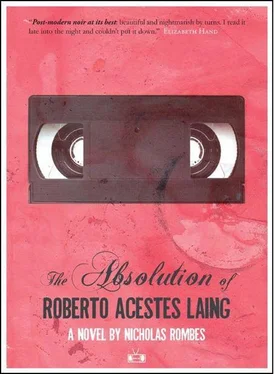
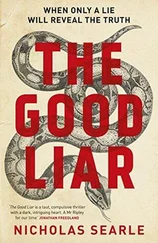
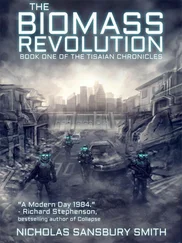



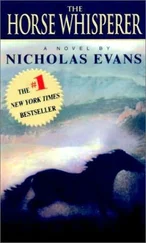
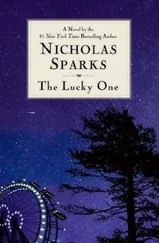




![Nicholas Timmins - The Five Giants [New Edition] - A Biography of the Welfare State](/books/701739/nicholas-timmins-the-five-giants-new-edition-a-thumb.webp)